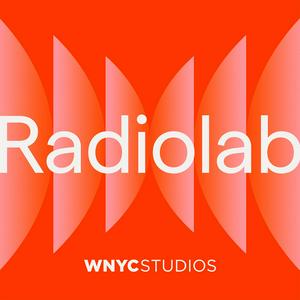It’s easy to take growth for granted, for it to seem expected, inevitable even. Every person starts out as a baby and grows up. Plants grow from seeds into food. The economy grows. That stack of mail on your table grows. But why does anything grow the way that it does? In this hour, we go from the Alaska State Fair, to a kitchen in Berkeley, to the deep sea, to ancient India, to South Korea, and lots of places in between, to investigate this question, and uncover the many forces that drive growth, sometimes wondrous, sometimes terrifying, and sometimes surprisingly, unnervingly fragile.Special thanks to Elie Tanaka, Keith Devlin, Deven Patel, Chris Gole, James Raymo and Jessica SavageEPISODE CREDITS: Reported by - Matt Kielty, Becca Bressler, Pat Walters, Sindhu Gnanasambandun, Annie McEwen, Simon Adlerwith help from - Rae MondoProduced by - Matt Kielty, Becca Bressler, Pat Walters, Sindhu Gnanasambandun, Annie McEwen, Simon AdlerSound design contributed by - Jeremy Bloomwith mixing help from - Jeremy BloomFact-checking by - Emily Krieger and Natalie Middletonand Edited by - Pat WaltersEPISODE CITATIONS:Audio:“The Joy of Why,” (https://www.quantamagazine.org/tag/the-joy-of-why/) Steve Strogatz’s podcast. Articles:“The End of Children,”(https://zpr.io/WBdg6bi8xwnr) The New Yorker, by Gideon Lewis-KrausBooks:Finding Fibonacci (https://zpr.io/3EjviAttUFke) by Keith DevlinDo Plants Know Math (https://zpr.io/bfbTZDJ8ehx5) by Chris GoleSingup for our newsletter!! It includes short essays, recommendations, and details about other ways to interact with the show. Sign up (https://radiolab.org/newsletter)!Radiolab is supported by listeners like you. Support Radiolab by becoming a member of The Lab (https://members.radiolab.org/) today.Follow our show on Instagram, Twitter and Facebook @radiolab, and share your thoughts with us by emailing
[email protected] support for Radiolab’s science programming is provided by the Gordon and Betty Moore Foundation, Science Sandbox, a Simons Foundation Initiative, and the John Templeton Foundation. Foundational support for Radiolab was provided by the Alfred P. Sloan Foundation.
